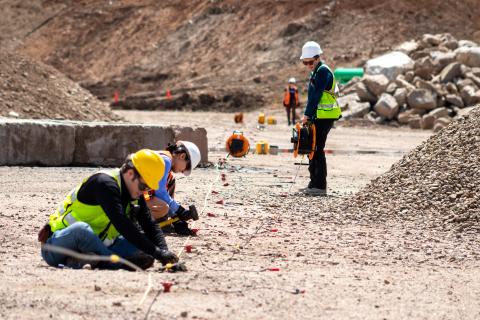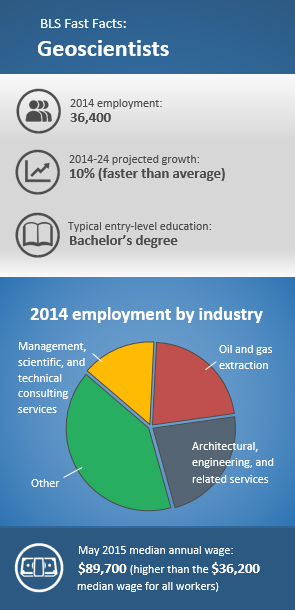All Categories
Featured
Table of Contents
Uses For Geophysical Data in Watermans Bay Aus 2022
This work is progressively contracted out, so consultancies offer another source of work. Consultancy firms vary in size, from very small companies to large multinationals. Some consultancies are quite specialised in utilizing particular geophysical methods or working in specific areas, while others provide a more diverse series of services to their customers.
The extraction of gas from landfill websites is another location of work and this might grow in the future. Exploration companies may undertake work for construction firms, water business, mining business and environmental companies, so geophysicists may be employed in any of these settings. Other employers include: geological surveysgovernment bodies and agenciesuniversities and research study institutes.


Jobs might be noted in the oil and gas sector press. Recruitment is impacted by oil price variations and the level of competition for positions varies depending on this. Professions Days, which cover the complete variety of geoscience professions and are normally gone to by a variety of essential industry employers, are run by The Geological Society.
Geophysical Survey Requirements In California Waters in North Fremantle Aus 2020
Some of the big oil and gas companies provide a full two-year structured training programme across the breadth of geophysics, consisting of the chance to experience work in numerous groups prior to specialising in one area. Your training may consist of work on: existing wellsmagnetic and gravitational potential field information analysisresearchrock analysis. Nevertheless, it's more typical for your initial training to be provided on the job.

There might be a probationary period during which you work alongside a skilled colleague. Competency-based appraisals take place regularly in a lot of firms. In smaller sized companies, and for scholastic posts, there is not likely to be any formal training - you'll be expected to start work straightaway and get abilities as you go along.
If you work for a smaller sized company, you may find that you need to take duty for arranging and funding your own advancement and training. If you have a geology degree, membership of The Geological Society can be helpful for networking and for maintaining to date with the market.
Geophysical Surveying And Mapping Services (Geology ... in Oakford Western Australia 2021
You might likewise find it helpful to sign up with the PESGB (The Petroleum Expedition Society of Great Britain, which has a geophysics unique interest group. After a probationary period, and once you've gained some experience, you might progress to senior geophysicist, then team leader and then into a senior function in management.
The ease of motion between functions depends on the company structure. Research study at Masters or Ph, D level in a subject associated to geophysics or geosciences might aid with your profession advancement and progression. The work market within the oil and gas industry is extremely depending on price and this might impact your opportunities for career progression.
For skilled geophysicists, freelance consultancy provides an excellent path for profession development. As a geophysicist, you're most likely to have several tasks throughout your working life.
Geophysical Survey Services in Butler WA 2020
From geophysics, it's possible to focus on seismology (finishing additional training to end up being a seismic interpreter) or to move into associated areas such as engineering geology or danger forecast.
Choosing what to study in college is a hard choice. Even if you understand that your field of interest lies in science, what program of study is ideal for you? If you make the choice to significant in physical and biological sciences and pursue a profession as a geophysicist, you're preparing for an interesting and successful profession.
The first action to attaining your objective of ending up being a geophysicist is earning a degree. Even for entry-level positions in the field of geoscience, you'll require a bachelor's degree (a geophysicist college degree) from a certified college or university. Some research study positions need prospects to hold master's degrees and even Ph.
Geophysicist Job Profile in Sinagra Aus 2021
Doctoral degrees are particularly essential if you plan to teach at a four-year organization. Geophysicists use physics ideas and techniques to study the gravitational, magnetic, and electrical fields of the earth. This furthers scientists' knowledge of both the planet's interior core and its surface. Geophysicists should have the ability to: examine rocks, pictures, and other pieces of information perform research study both in the field and in laboratories create maps and charts of their findings compose reports To achieve all this, trainees need a specialized education for geophysicist careers.
As mentioned above, you'll require a bachelor's degree in geoscience or a related discipline, such as a physical science or a life sciences, to land an entry-level task. However students can likewise prepare by majoring in subjects like: Biology Chemistry Computer science Engineering Mathematics Physics The above geophysicist majors provide a more generalized method to a single clinical discipline, but most programs need trainees to take several geology course.
Table of Contents
Latest Posts
Glad You Asked: What Are Seismic Surveys? in Mt Helena Oz 2023
Geophysical Survey Services - Geophysical Test Methods in East Fremantle Oz 2021
Marine Geophysical Surveying - in Butler Oz 2021
More
Latest Posts
Glad You Asked: What Are Seismic Surveys? in Mt Helena Oz 2023
Geophysical Survey Services - Geophysical Test Methods in East Fremantle Oz 2021
Marine Geophysical Surveying - in Butler Oz 2021